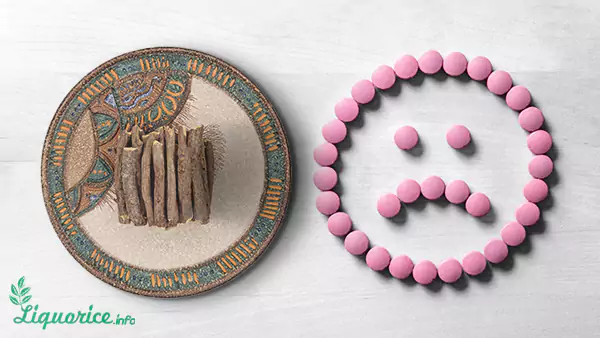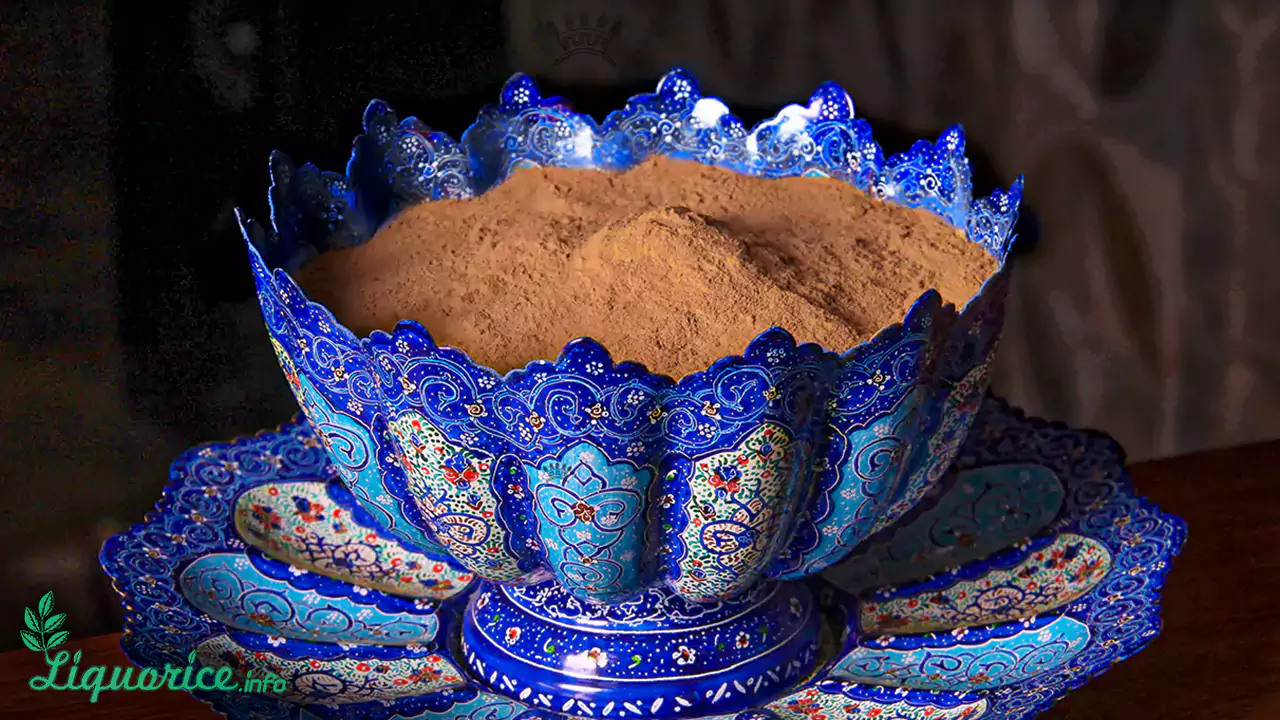
Licorice is one of the medicinal plants which has been used for thousand years. It has been also consumed in cooking as a flavoring and sweetener. Nowadays, licorice is popular in various industries such as confectionery, pharmaceutical, food and beverages, tobacco and many more. This plant has positive effects on our health for example it is useful for treatment of digestive disorders, peptic ulcers, acid reflux, heartburn, cough, sore throat, skin problems etc. However, licorice should be used in the recommended dose, because exceeding in using licorice leads to some side effects.
In this article, Sepidan Osareh Jonoob Co., discusses the common licorice side effects and interactions.
Licorice Interaction with Drugs
Licorice may interact with some drugs and medicines. Licorice may reduce drugs efficiency or increase their efficiency. Therefore, it possibly worsens their side effects.
People who take cholesterol lowering, blood pressure, nonsteroidal anti-inflammatory and estrogen-based contraceptives, anti-arrhythmia, antihypertensive, anticoagulants drugs and many other ones, should definitely consult their G.P about using licorice products.
It is better not to use licorice with these medicines:
- Warfarin
- Digoxine (lanoxine)
- Hormonal medications
- Blood pressure drugs
- Heart medicines

Licorice Risks for Breastfeeding and Pregnancy
During pregnancy and breastfeeding is necessary for women to consult their general practitioner about using licorice and its amount to see if licorice is safe. Otherwise, it may lead to dangerous side effects like premature birth or health problems for babies. Some studies are being done to see if licorice is safe for children and whether it causes some negative neurological effects in children later in their life.
Licorice Side Effects
Licorice like many other herbs must be used in a recommended dose and we shouldn’t exceed that amount. It could have some side effects, although more surveys should be conducted to be certain about that. There is an element in licorice called glycyrrhizic acid. Sweetness in licorice is due to this component. Licorice antiviral and antibacterial, antioxidant, and anti-inflammatory features are because of this factor. It is believed that licorice side effects are mostly because of this component. Excessive consumption of licorice or using it for a long period of time may cause high blood pressure and decrease of potassium levels. So, people suffering from hypertension, kidney and heart problems must really care about the licorice standard dose.
Licorice DGL (deglycyrrhizinated licorice) possibly has fewer side effects, because glycyrrhizic acid is reduced, though this subject is not proved.
Licorice overdose may lead to increase in glycyrrhizin levels in our body. This condition causes some health problems. It boosts the stress hormone, so some tensions and imbalances may be followed. Excessive licorice use makes us feel weakness in our muscles and result in fatigue. It possibly changes heart beat rhythms. Rarely licorice poisoning happens and result in disorders in kidneys. It may also cause headache.

In this passage we pay attention to common licorice side effects and interaction with drugs; but licorice is considered as a safe food ingredient by the Food and Drug Administration (FDA). Not only Consuming licorice for a short period isn’t dangerous, but also is widely assumed helpful and healthy.
Written and Edited by: Meysam Shokripour (Sepidan Osareh Jonoob Company)
References : IranLicorice.com





